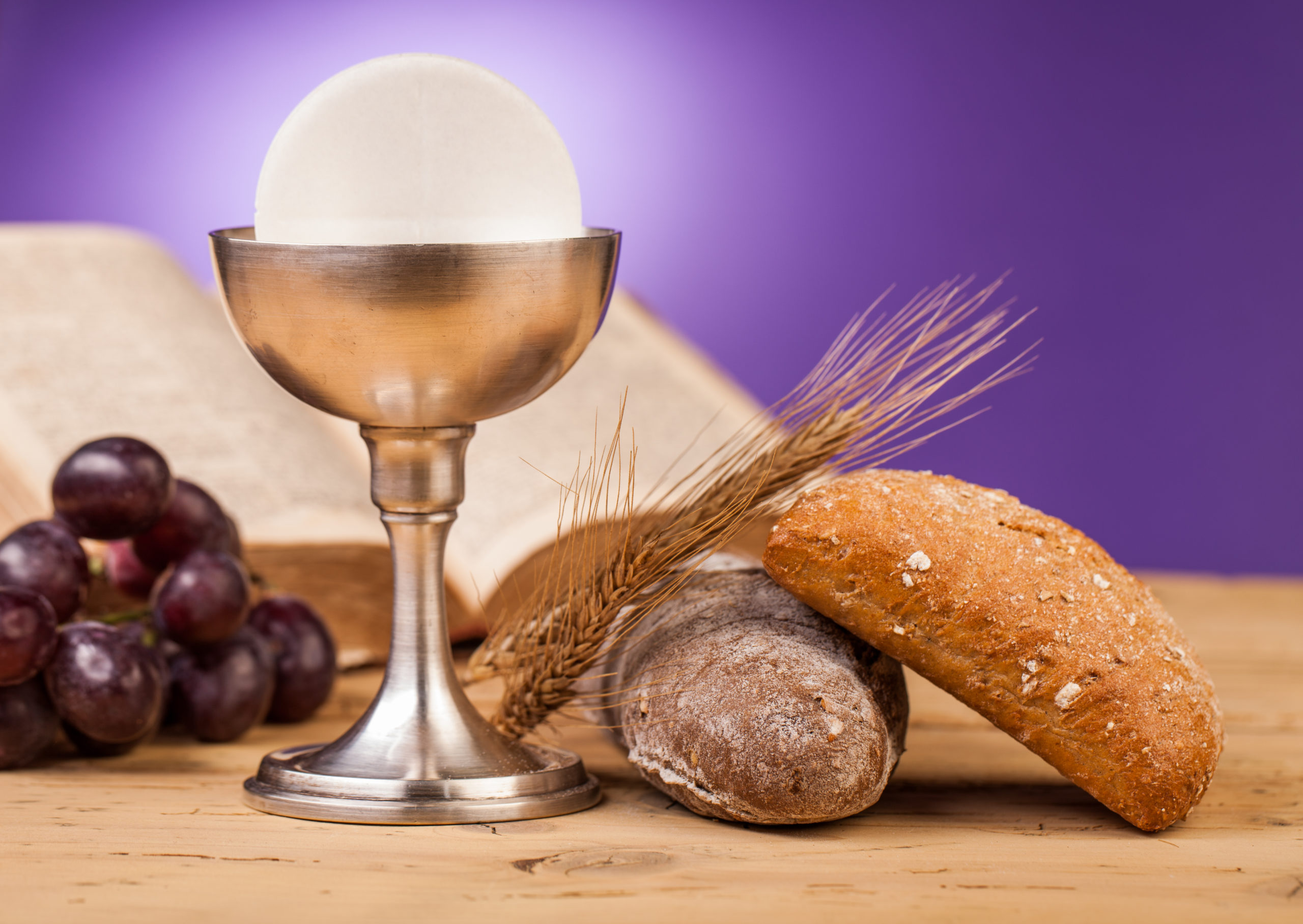
The Catechism of the Catholic Church teaches that the words “daily bread” in the Our Father refer not only to our physical sustenance, but also to the Gospel, and especially to Jesus in the holy Eucharist, who confirms and sustains us in our spiritual lives. MARIUSZ SZCZYGIEL/SHUTTERSTOCK
Spiritual Life
‘Give us this day our daily bread’
December 16, 2020
In last month’s column, we learned about the first three petitions of the Our Father. Now we turn to the final four. “The fourth and fifth petitions concern our life as such – to be fed and to be healed of sin; the last two concern our battle for the victory of life – that battle of prayer” (Catechism of the Catholic Church, no. 2805). Let’s look at petition four today, “Give us this day our daily bread.”
The Catechism begins by noting that God is the giver of all good things. He supplies food not only for humans, regardless of whether they follow him or not, but for all creatures. “Jesus teaches us this petition, because it glorifies our Father by acknowledging how good he is, beyond all goodness” (no. 2828). He owes us nothing, but gives us everything.
There is also an implied imperative for those who pray the Our Father to help supply food for the needy. We should pray for the hungry, but also act to see that their hunger is satisfied (no. 2831). Once again, there is a connection between what we pray and the way in which we are to live our lives. We help bring about the kingdom of God when we let our faith act as yeast within the world, transforming society to bring about God’s justice (no. 2832).
The bread we ask for is not just physical food. “Man does not live by bread alone, but . . . by every word that proceeds from the mouth of God” (no. 2835, quoting Dt 8:3 and Mt 4:4). The world is “hungry” for the Gospel. We must share this food above all.
The Catechism notes that the phrase “this day” teaches us to trust in God. In the desert, the Israelites received manna from heaven every morning, except on the Sabbath. Moses instructed them to gather enough food only for that day, except on Fridays, when they would gather enough for two days. If people tried to hoard the manna, it became full of worms. But this did not occur with the Sabbath day’s portion. God was teaching Israel to rely on him, rather than on material goods, or their own actions.
Further, “this day” is equivalent to the day of salvation. “If you receive the bread each day, each day is today for you. If Christ is yours today, he rises for you every day. How can this be? ‘You are my Son, today I have begotten you.’ Therefore, ‘today’ is when Christ rises” (no. 2836).
“Daily bread” is not just being redundant. Jesus himself, the Catechism affirms, is our daily bread. The Eucharist, celebrated nearly every day of the year, confirms and sustains us in Christ. It points toward the heavenly wedding banquet that we will be invited to on “the day of the Lord” (no. 2837). This day is, of course, most concretely prefigured in the celebration of Sunday Mass.
Concluding its teaching on this petition, the Catechism says, “The Father in heaven urges us, as children of heaven, to ask for the bread of heaven. (Christ) himself is the bread who, sown in the Virgin, raised up in the flesh, kneaded in the Passion, baked in the oven of the tomb, reserved in churches, brought to altars, furnishes the faithful each day with food from heaven” (no. 2837).
It is fitting in this time of the coronavirus pandemic to pray that all Catholics may soon be able to receive sacramentally the Bread of Life that they long for.
Connie Rossini is a member of St. Peter Parish in Omaha. She is the author of “The Q&A Guide to Mental Prayer,” now available at amazon.com, and five other books on Catholic spirituality.